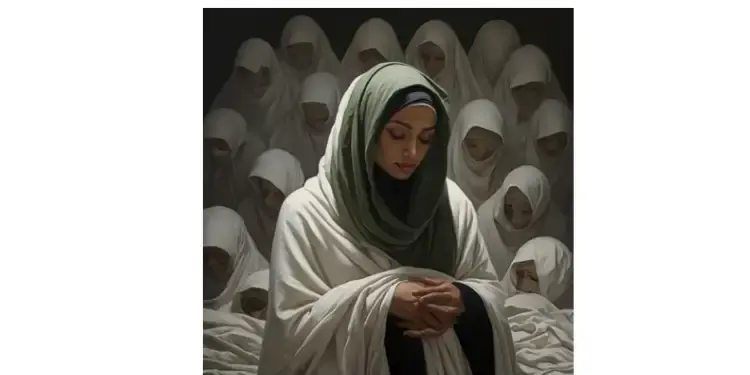Among the countless tragedies experienced by the Gaza Strip, the history of Doctor Alaa al-Najjar stands as a symbol of sorrow mixed with overwhelming resilience.
On May 23, 2025, an Israeli air strike destroyed his house in Khan Younès, killing nine of his children. Her husband, Doctor Hamdi al-Najjar, seriously injured during the attack, died on June 1 after several days spent in intensive care. Despite this unspeakable loss, Alaa returned to the hospital, resuming her work with injured children, in an almost unreal act of courage.
A moment, a broken life
That morning, doctors Alaa and Hamdi al-Najjar had left their home early to reach their posts at Nasser Hospital in Khan Younès. A few minutes later, their house was struck by a bomb. The nine children, aged a few months to twelve, were killed instantly. Hamdi, returned hastily to the scene, was seriously injured and hospitalized. He died on June 1, leaving Alaa alone, broken but standing.
Mourning as an engine
Faced with this tragedy, Dr. Alaa could have collapsed. But instead, she chose to get up and return to the corridors of the hospital, where the cries of the injured children resonate even stronger than those of her own heart. A nurse testifies: “She did not shed a tear before us. In his silence, there was a heartbreaking power. She held the wounds of others when she had just lost everything that counted. »»
Its strength is not only human: it is part of this deep faith which teaches that any test is a test, and that patience is a light. The Koran reminds us:
“And make good announcements to the enduring, who say, when a misfortune reaches them: ‘Certainly, we are to Allah, and it is to him that we will return.’ »»
﴿وَب politincaver shutout ٱlish ٱلصَّبِب bus ٱلَذذ assذ attack إ operator إ politآ أَص أَصَتْهُم مُصّص مُص ↑ ↑ قَالُوٓا۟ إ opera إ opera ل رuster
(Surat al-Baqara, 2: 155-156)
Alaa embodies this exemplary patience, not as an absence of pain, but as an active faith which transforms suffering into an act of service and life.
The mourning of a people
The story of Alaa is far from isolated. In Gaza, each family carries a cross, each mother an absence. These people, taken between the ruins and the aborted dreams, nevertheless still finds the strength to continue, to rebuild, to hope. Mourning is daily, but never ordinary. It is imbued with fierce dignity, an unconditional love for life despite everything.
When the pain becomes testimony
Alaa’s gesture, holding the shrouds of her own children in her arms, has become a powerful image of this war. She is not only a mourning mother, but a silent cry addressed to the world. A call to look, to hear, to act.
Light in darkness
The name of Alaa al-Najjar will forever shine like that of a woman who, plunged into the abyss of loss, has chosen to get up by faith. She faced the test with a patience worthy of the most pious, entrusting her heart to the very high. His gesture, far from being humanly understandable, is of this spiritual force that only the certainty of the beyond can instill. In her, resonates the divine word:
“Do not think that those who are killed in the Allah path died. On the contrary, they are alive, but you are unconscious. »»
﴿وَلَا تَحْسَبَنَّ الَذذ assذ attack قُت shutaithINAding في aker سَبا اللَّه sell أَمْوَاتًا ۚ OF
(Surat-âl-Imrân, 3: 169)
His faith sheds light on darkness, and his story becomes a reminder for all of humanity: even in horror, the light of faith can guide the steps of believers towards patience, resilience and hope.
This testimony is dedicated to all the mothers of Gaza. May their pain be heard and their resilience respected.








